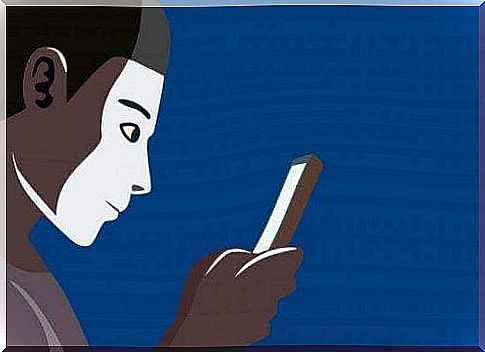Lies On Social Networks

Lies on social networks, as in other areas of our lives, reach us constantly. In fact, there are several branches of science that explain the effect of lies in communication.
Sociologists, anthropologists, psychologists, physicists and mathematicians have all studied lies from their perspective. Specifically, they tried to understand the purpose of lying on social media and how these lies affect us. In addition, they studied the parts of the brain that participate in lying.
Mathematics and lies on social networks
Rafael A. Barrio of the Institute of Physics of the National Autonomous University of Mexico (UNAM) conducted an interesting study. This one revealed that people lie on social networks just as often as they do elsewhere.
This was an international study. The researchers applied a dynamic opinion model via a large telephone network that reached the entire European Economic Community. In particular, this study aimed to investigate the role of lies on social networks.

This study, which analyzed interactions between people, was conducted through a paging system that reached seven million telephones. The study emphasized that lies are essential elements that preserve the essence of most relationships between people.
“ Although we are taught as children that lying is bad and that we should be honest, we are still learning to lie. Sometimes in sophisticated ways, but we do it constantly. In addition, it is something that other primates, such as chimpanzees, also do. said Barrio.
Types of Lies on Social Networks
In their article “ Effects of deception on social networks ” (English study), the authors of this study stated that there are two types of lies on social networks:
- White or prosocial lies
- Black or antisocial lies
As most people will already understand, white lies have a positive and harmless connotation. However, black lies have a harmful and offensive connotation.
We usually say a white lie for a good reason and not to adversely affect the other. On the other hand, black lies have perverse intentions. As conclusions published in the journal Proceedings of the Royal Society B: Biological Sciences , the researchers found that:
- White (or prosocial) lies on social networks, where the recipient benefits from the missing truth can: balance and bring societies together, offer a variety of opinions to the group in general and finally help to maintain broad, social relationships.
- However, black (or antisocial) lies on social networks are selfish and only useful to the spreader, and they can sever ties because they encourage mistrust. They are especially harmful because they create a sense of deception that can disrupt the entire network and sever relationships.
Why do we lie on social media?
With the social aspect comes deceit. Our brains can handle more relationships with others through lies. If we’re honest all the time, our ties to others wouldn’t be that strong. In other words, it’s a technique we use to be in a relationship with more people at the same time.
As time goes by and the network takes the form of a balanced community structure, people lie no less. On the contrary, they lie even more. However, it is still true that the number of antisocial lies that are detrimental is decreasing.

If I lie I don’t get isolated
People who are always honest risk becoming isolated because they tend to hurt others with the truth. These people are particularly characterized by being withdrawn from society and not having many friends. This is because they tend to say exactly what they think without fear.
In addition, many people think that these people’s comments are inappropriate or inconvenient. Being honest is therefore not always the best idea from a social standpoint. However, honest people have respect and trust from other people, and that also makes it a virtue.
We cannot say that people are liars. Rather, we sometimes lie because it’s convenient. The reason we lie is because we are social beings. Our societies consist of many groups of people with whom we constantly associate. We also want to benefit as much as possible from these groups on both a social and emotional level.
Social networks have many advantages and disadvantages. The worst thing about them is that we hide so much of our true selves that we end up creating false experiences.









